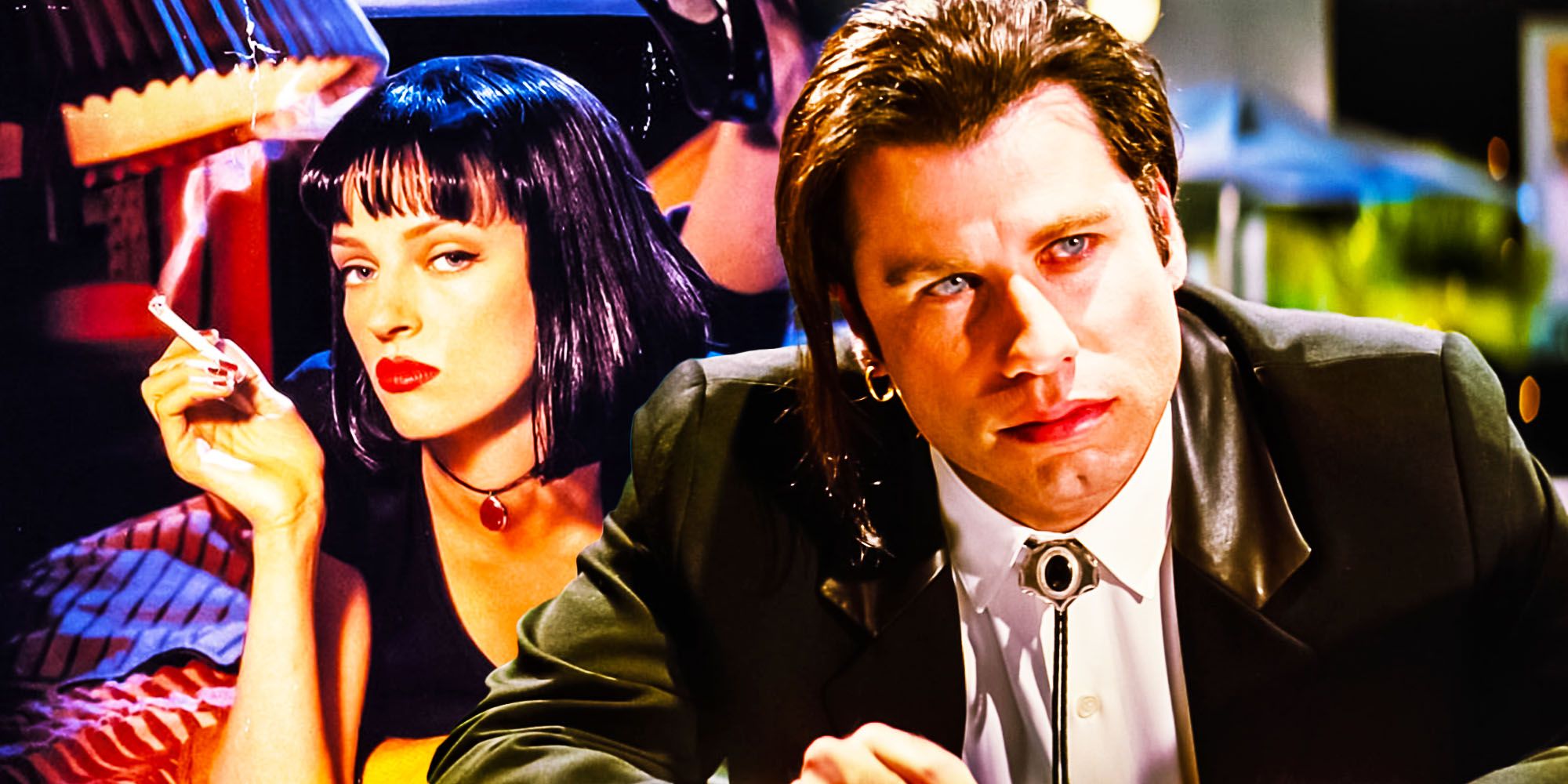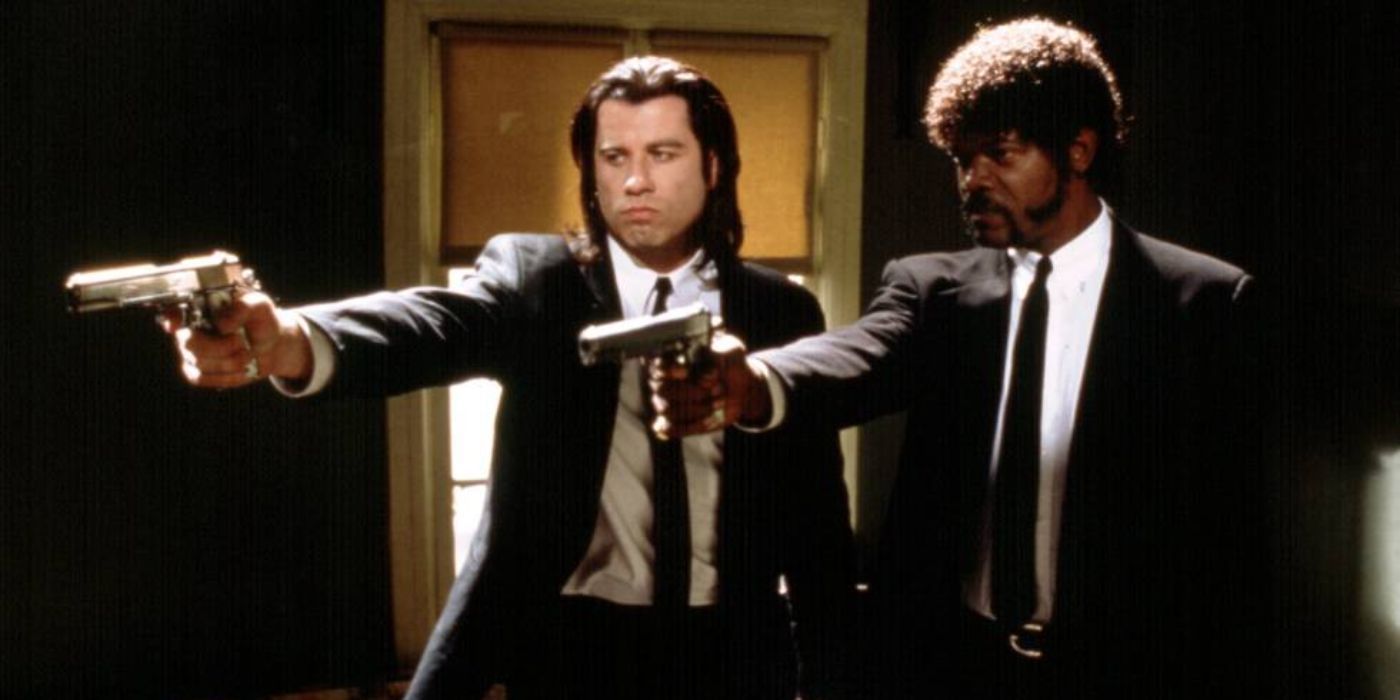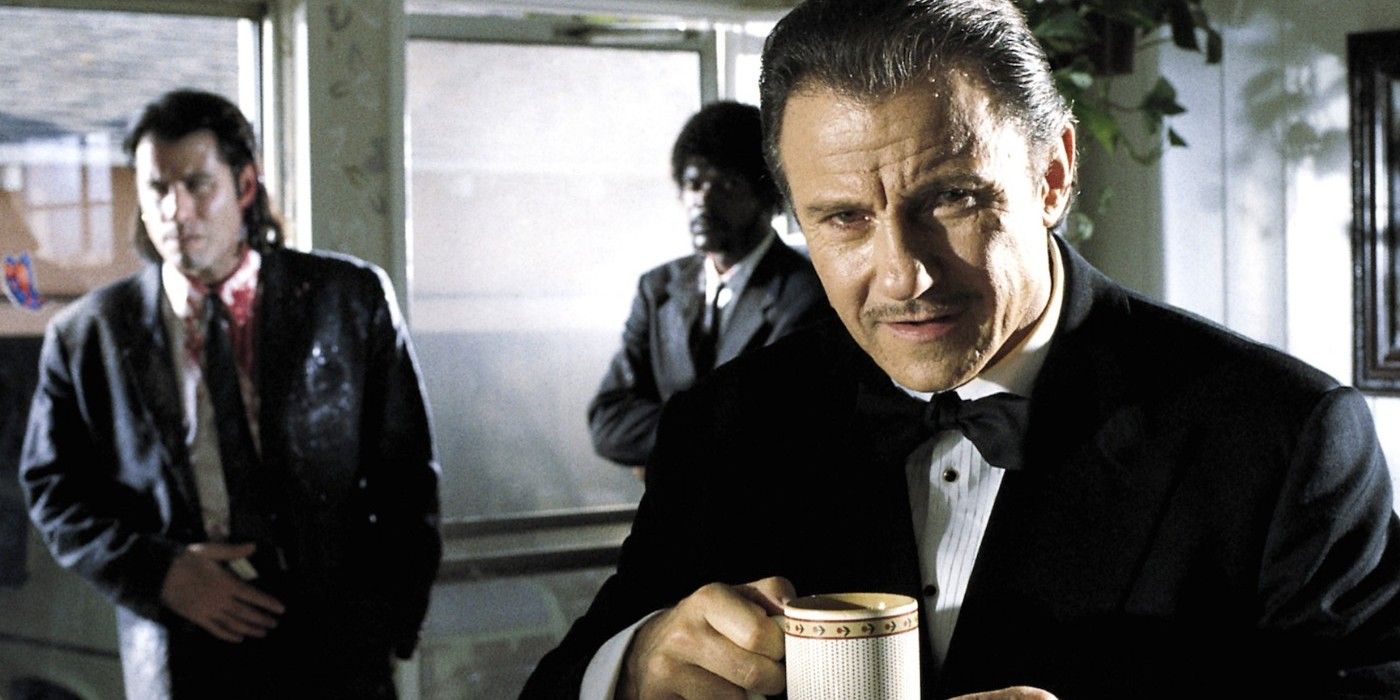Pulp Fiction is widely regarded as Quentin Tarantino’s breakout, but there are some details about it that raised many questions, such as the Pulp Fiction title meaning and how it connects to the movie’s story. Tarantino remains one of the most acclaimed but also controversial filmmakers of his generation, thanks to his peculiar narrative and visual style and the amount of violence and blood in every one of his movies. Pulp Fiction is formed by different segments told in a non-linear narrative, led by different characters, whose paths cross at some point.
These characters are hitmen Jules Winnfield (Samuel L. Jackson) and Vincent Vega (John Travolta), their boss Marsellus Wallace (Ving Rhames), his wife Mia Wallace (Uma Thurman), and boxer Butch Coolidge (Bruce Willis), all of them leading at least one segment. Pulp Fiction is considered one of the most influential movies of the 90s and continues to be analyzed and praised by critics and viewers. However, one question remains about the movie, and it isn’t linked to the mystery of the briefcase nor the true intentions of some characters. What is the meaning of Pulp Fiction, the movie's actual title?
How Pulp Fiction's Title Perfectly Fits The Movie
When looking at the Pulp Fiction title meaning, watch the opening scene. The opening title card in Pulp Fiction gives two dictionary definitions of “pulp.” The first definition is “a soft, moist, shapeless mass of matter.” The second one is “a magazine or book containing lurid subject matter and being characteristically printed on rough, unfinished paper.” The movie’s title refers to the latter meaning of pulp fiction, popular during the mid-20th century and known for graphic violence and snappy dialogue. These were printed on cheap wood pulp rather than high-quality, glossy paper like most magazines. “Pulp fiction” also referenced low-quality literature. Pulp magazines contained a wide variety of genre fiction, most notably mystery, fantasy, horror, sci-fi, and western, and are sometimes considered the predecessors of comic books.
While Pulp Fiction might not seem to have much in common with its title, it actually fits perfectly. Tarantino is no stranger to tributes and homages to other movies and everything that served as an inspiration to him, including pulp magazines. Pulp Fiction is Tarantino’s version of a pulp magazine, with its graphic violence, seedy characters, and situations that include violence and crime on different levels. In Pulp Fiction and its story divided into segments, Tarantino tried to mirror the structure and essence of pulp magazines while also giving it his own style. The Pulp Fiction title meaning isn’t the only Quentin Tarantino movie that has raised questions about its connection to the story, but it might be the most misunderstood one.
Pulp Fiction's Title Reflected Tarantino's Career Ambitions
In an interview with Film Comment, Quentin Tarantino talks about what the Pulp Fiction title meaning referenced to him. In his case, it wasn't so much just paying homage to the genre, but leaving it completely. Much like Pulp Fiction, Tarantino's first movie, Reservoir Dogs also played in the same sandbox of pulp genre fiction. In the interview, Tarantino said he was ready to get all that out of his system and move on to something different. He said he didn't want to end up like Don Siegel, who he admires greatly. However, he didn't want to get pigeonholed as just the "gun guy."
By making this movie, and even naming it Pulp Fiction, Tarantino felt he could escape the genre trappings and move on to other things he wanted to do. He name-dropped comedies, Westerns, and war films. That is exactly what he did. If he had never escaped the pulpy gangster genre, Tarantino never would have made his westerns like Django Unchained and one of his masterpieces in the war movie Inglourious Basterds. Tarantino knew he wanted to make this crime movie, and once it was done, he was ready to move on to something bigger and better. It was time to leave the pulp fiction behind him.



